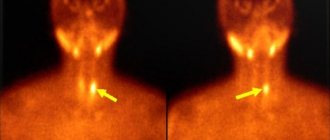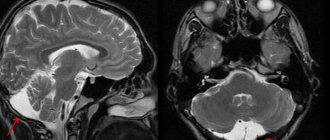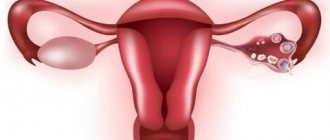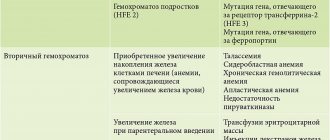Treatment of acute infectious gastroenteritis in children and adults
Inflammation of the intestinal and stomach mucosa is called gastroenteritis.
The disease can be caused by bacteria, parasites and viruses. Symptoms of gastroenteritis in children are abdominal pain, loose stools, fever, headache, weakness, irritability, vomiting and flatulence. The pathology may be infectious or caused by incompatibility of products (alimentary gastroenteritis). The disease ranks second in pediatric practice after influenza and acute respiratory viral infections. Rotavirus gastroenteritis in adults is subclinical. Causes of the disease:
- failure to comply with personal hygiene rules;
- expired products;
- insufficient heat treatment;
- helminthic infestations;
- excessive consumption of alcoholic beverages.
Gastroenteritis of unspecified etiology can be caused by malnutrition, eating too spicy food, or long-term use of certain medications.
Most often, the disease occurs in people with reduced immunity, with chronic diseases of the gastrointestinal tract, and also against the background of hypothermia.
What is gastroenteritis, its causes
Gastroenteritis is a very common inflammatory disease of the stomach and intestines.
Vomiting, diarrhea, colic, weakness, and sometimes fever are its main symptoms that are familiar to many. There are a huge number of causes of gastroenteritis:
- pathogens of infectious (viruses, bacteria) and parasitic diseases;
- food poisoning - poisoning by toxins of bacteria that are formed as a result of their vital activity;
- side effects of taking certain medications (for example, nonsteroidal anti-inflammatory drugs), radiotherapy and chemotherapy;
- poor nutrition;
- food allergies or intolerance to certain foods;
- stress.
Gastroenteritis can also be one of the symptoms of certain diseases.
The causative agents of infectious and parasitic diseases are released into the external environment along with feces, often in huge quantities. This is why earlier epidemics of intestinal infections (cholera, diphtheria, typhoid) spread so quickly and claimed a huge number of lives. They enter the human body with contaminated food and water. Therefore, failure to comply with basic rules of personal hygiene (thorough washing of hands after using the toilet, before eating) and visiting catering establishments that violate sanitary standards significantly increases the chances of encountering gastroenteritis.
Classification of gastroenteritis
The acute form has three degrees of severity. The first is characterized by minor vomiting and diarrhea. There is no high fever or symptoms of dehydration. Moderate degree – diarrhea up to 10 times a day, fever, vomiting, pain. Severe degrees are accompanied by severe dehydration, high fever (over 38 degrees), diarrhea (more than 15 times a day) and confusion.
The chronic form of the disease is divided into chronic gastroenteritis without atrophy, with atrophy, and gastroenteritis with damage to epithelial cells. The disease has periods of remission and exacerbation. The symptoms of the chronic form are more smoothed out. On our website you will find answers to many questions, including how long the quarantine period for gastroenteritis in kindergarten is.
Clinical manifestations of the disease
The incubation period lasts from several hours to three days. The severity of symptoms depends on the cause of the disease. General manifestations:
- weakness, general malaise;
- headache;
- nausea, flatulence;
- cramping abdominal pain, heaviness in the stomach;
- elevated temperature;
- vomiting, diarrhea.
The course of bacterial gastroenteritis is more severe than the form caused by a virus.
In acute gastroenteritis, special attention should be paid to dehydration of the body, which increases very quickly as a result of uncontrollable vomiting and diarrhea. Dehydration is manifested by confusion, convulsions, severe weakness, tachycardia and decreased blood pressure. The skin becomes dry and its elasticity decreases. There is a decrease in urine output, up to anuria. Treatment of acute infectious gastroenteritis should primarily be aimed at restoring the body’s water and electrolyte balance and eliminating the pathogen.
Treatment
Photo: marimedia.ru
Treatment of gastroenteritis in adults and children in most cases occurs at home. When the first symptoms appear, you need to immediately take some measures that are aimed at improving the patient’s condition.
Treatment of all forms of gastroenteritis includes the following aspects:
- normalization of water-salt balance in the body;
- the first hours after the onset of the disease - complete refusal of food, after which you need to adhere to a certain diet;
- taking medications that are aimed at stopping vomiting and diarrhea;
- use of antibiotics.
Treatment of gastroenteritis in adults can be done with folk remedies, which are aimed at restoring the mucous membrane of the stomach and intestines. Also, these medications are acceptable for oral use to replenish fluid loss in the body. To improve the patient’s condition, the use of physiotherapy is quite effective:
- paraffin applications;
- warm compresses;
- inductothermy.
After relief of the main symptoms, you need to begin restorative therapy, which is aimed at normalizing the functioning of the digestive system.
Viral gastroenteritis - treatment
If you have symptoms that may indicate the development of the disease, you should contact the on-duty therapist. During the examination, the doctor will determine the treatment tactics. If the patient’s condition does not improve after 1-2 days, a decision is made to place him in a hospital.
The main aspect of the treatment of viral gastroenteritis is the elimination of dehydration. In this case, the use of saline solutions is indicated. Both pharmaceutical drugs and homemade products have a positive effect.
Complex treatment of the disease includes taking the following medications:
- antiviral;
- enzymatic;
- astringents;
- eubiotics.
As a preventive measure against viral gastroenteritis, vaccines are used against certain types of viruses that cause the development of the disease.
Treatment of infectious gastroenteritis
In the presence of the infectious nature of this disease, the use of dehydration therapy is indicated, which is aimed at restoring the water-salt balance. In acute gastroenteritis caused by various bacteria, antibiotics are prescribed. It is strictly forbidden to take them on your own, since if you choose the wrong treatment regimen, this can cause increased dysbiosis.
In the treatment of infectious gastroenteritis, agents are also used that are aimed at eliminating the main symptoms of the disease - fever, diarrhea, vomiting. Enzyme preparations are often prescribed to improve digestion. Also shown are agents that have an enveloping effect on the mucous membrane of the stomach and intestines.
Acute gastroenteritis - treatment
Treatment of the acute form of the disease occurs in a hospital. At the same time, it is important to monitor the patient’s condition and take measures aimed at improving it. In this case, treatment is carried out by a gastroenterologist.
Rehydration of the body in acute gastroenteritis is most often carried out intravenously in several stages. First, the entire volume of the missing fluid is restored, after which special solutions are gradually introduced as diarrhea and vomiting develop.
Also, therapy for acute gastroenteritis includes the following aspects:
- gastric lavage at the first stage of treatment;
- taking symptomatic medications that will help eliminate high fever, diarrhea, vomiting, pain and cramps in the stomach;
- sorbent preparations;
- dietary nutrition;
- medications to restore intestinal microflora;
- enzyme preparations.
Treatment of gastroenteritis in children
Treatment of any form of the disease in children is no different from treatment in adults. If you have alarming symptoms, you should contact your pediatrician, who, after an examination, will determine whether the baby needs to be hospitalized. If the child's condition is satisfactory and improves after taking rehydration medications, treatment is carried out at home.
If your baby gets sick, there is no need to stop his usual diet. Breast milk or formula will not harm him. When treating older children on the first day, it is best not to feed him at all. You need to give your child plenty to drink to replenish the loss of fluid in the body.
Diet for gastroenteritis in children
The diet for gastroenteritis includes the following nutritional rules:
- For the first hours after the onset of vomiting and diarrhea, you can only drink water, unsweetened compotes, and herbal decoctions.
- After the child’s condition improves, introduce mashed baked apples, bananas, and potatoes into the diet.
- Starting from the third day, you can eat vegetable soups, porridges and lean boiled chicken.
- Only from the fourth day introduce boiled eggs, lean meat and fish, and biscuits into your diet.
- The next day, you can gradually return to your normal diet.
- Eliminate dairy products from your diet for at least a week.
What can you eat if you have gastroenteritis?
Proper nutrition for gastroenteritis is one of the main aspects in the successful treatment of the disease. During the acute onset of symptoms and for at least two weeks afterward, the following foods should not be consumed:
- raw vegetables and fruits;
- fat meat;
- rich broth;
- milk;
- all sweets, fresh pastries, sugar;
- alcohol.
All food should be light, thermally processed. Do not eat anything spicy or hot, so as not to cause even greater inflammation of the gastric mucosa. Portions should be small, and each new product should be tried in small quantities.
Prevention of gastroenteritis
To prevent the development of the disease, first of all, you should always wash your hands thoroughly before eating and after visiting the toilet. All perishable foods should be stored in the refrigerator. Also, do not forget to wash fresh vegetables and fruits.
If someone in your home is sick, try to isolate them from the rest of the family. Provide the patient with separate dishes and a towel.
Also, always eat only in trusted catering establishments, where you can be sure of the quality of the food and compliance with sanitary standards in the kitchen.
Symptoms of gastroenteritis in children
In childhood, bacterial and viral gastroenteritis is very severe. The disease is especially dangerous for infants, since in the presence of dehydration, irreversible processes occur in the baby’s body.
The first symptoms of acute gastroenteritis occur a few hours after infection. The clinic depends on the age of the child, the state of immunity and the type of pathogen. Symptoms of the initial stage:
- stomach pain, flatulence;
- general weakness;
- nausea, vomiting;
- headache;
- diarrhea.
As the disease develops, the initial manifestations intensify with increased temperature, decreased blood pressure and bradycardia.
How to treat childhood gastroenteritis? Broad-spectrum antibiotics and antimicrobial agents are used. In addition, the use of antiemetics, enterosorbents, antispasmodics, and enzymes is indicated.
Diagnostics
When examining a patient, the doctor notes clinical phenomena characteristic of gastroenteritis. These are muscle weakness, clearly audible sounds in the intestines, and a swollen throat. The tongue is covered with a white coating, heart sounds are muffled. The temperature is relatively low - from 37.1 to 37.3°C.
Severe forms of acute gastroenteritis occur with fever and dehydration. Urine production may stop completely, and blood circulation may be impaired. A common symptom of rotavirus gastroenteritis is problems with the respiratory tract. The patient develops a runny nose, pharyngitis, or a mixture of ailments.
Diagnosis of gastroenteritis is complemented by laboratory tests. The virus in the patient’s stool is detected using ELISA, RSK, RLA, RCA methods. Other methods are RIF (immunofluorescence analysis for detecting antibodies), immunoprecipitation (detection of antigens) in a gel.








